Five years after Durham District Attorney Jim Hardin and Chief Superior Court Judge Orlando Hudson teamed up to reduce a huge backlog of cases, the district's other three Superior Court judges say the two are bypassing them and funneling the county's major criminal cases to Hudson.
.
Defense lawyers call it judge-shopping, and they say Hardin is doing it to punish judges who have ruled against the prosecution.
.
"I think there is forum-shopping being abused by the district attorney, and many experienced judges have heard few felony cases while many are placed on one judge's platter," said Durham Superior Court Judge David Q. LaBarre, a 20-year veteran of the bench.
.
Superior Court Judge Ronald Stephens says the one major case he has heard in the past several years came only after he complained to Hudson and the state Administrative Office of the Courts. "It's like running a basketball team with a player-coach that brings the ball down the court and shoots every time," Stephens said. "There is some frustration in that."
.
Superior Court Judge Leon Stanback, who was named "Outstanding Trial Judge of the Year" for 1998 by the North Carolina Academy of Trial Lawyers, says he can't recall hearing a first-degree murder trial since Hardin became district attorney in 1994. "I think they select certain judges, and DAs are in good position to do that," he
said. "If they don't like the way they rule, I imagine they have the prerogative of what judges get certain cases."
..
Hudson and Hardin say the perception is the result of a necessary relationship that saved Durham's court system from collapsing under the weight of a huge case backlog. They began discussing the problem in 1993, Hardin said, before he became district attorney and just after a lawsuit was filed against then-District Attorney Ronald Stephens, who held the job for 11 years and is now a Superior Court judge.
.
Hudson and Hardin devised a case management system that went into effect in 1995, and Hudson says he took many cases just to get the system working.
..
"As a result, over the past four years I have handled just about every criminal case in Durham County," Hudson said. "I think that is the way it just worked out - that I got 11 of 12 important cases. From that standpoint, of taking on cases to get it done, it's probably a legitimate complaint."
.
He says Hardin is just using the scheduling power given him by the legislature. "Jim Hardin doesn't put himself at a disadvantage," Hudson said. "I don't know of any official that puts his office at a disadvantage. I think the DA has a lot of power, and when the legislature leaves scheduling in the hands of the DAs, you have sanctioned judge-shopping."
.
... Judge-shopping is legal in North Carolina, the only state in the country where district attorneys decide when and where a case goes to trial. The American Bar Association and the National Center for State Courts say the practice isn't fair. Defense lawyers and judges say it allows district attorneys to punish judges who rule against them by giving them minor cases while important cases wait to be heard by judges who are thought to be sympathetic to a prosecutor's case.





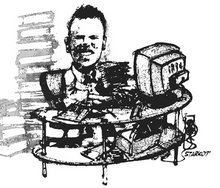

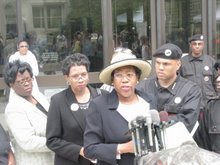
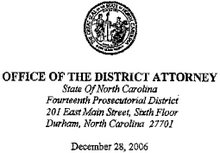




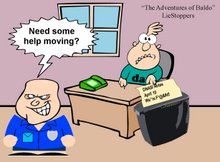

















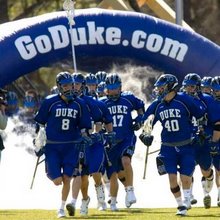







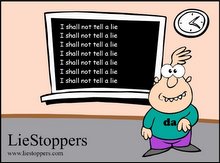






No comments:
Post a Comment